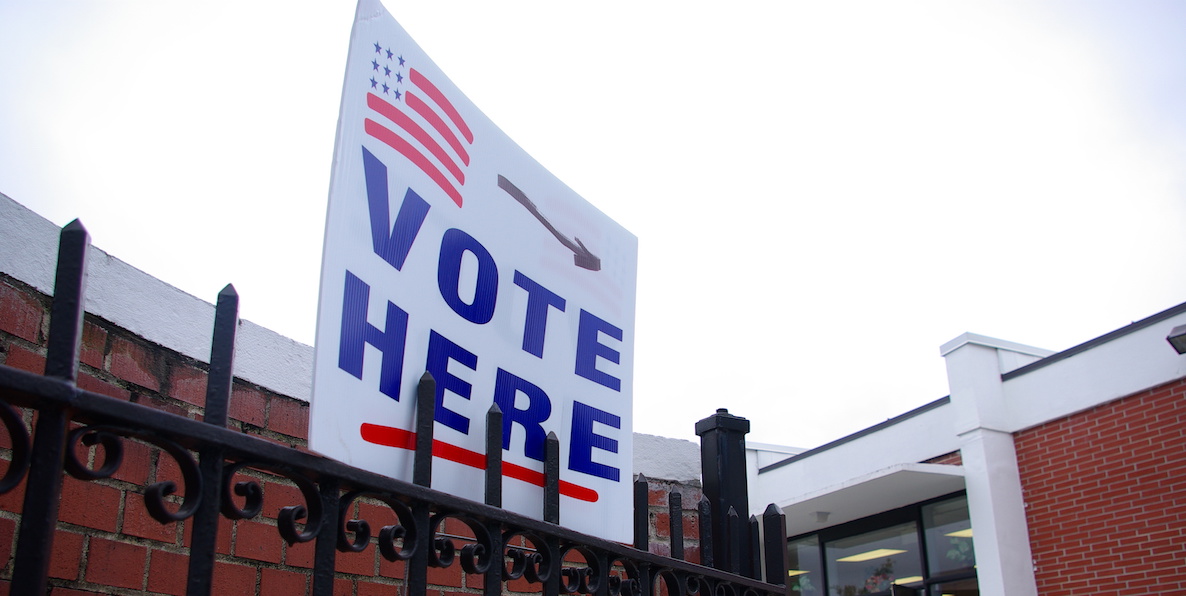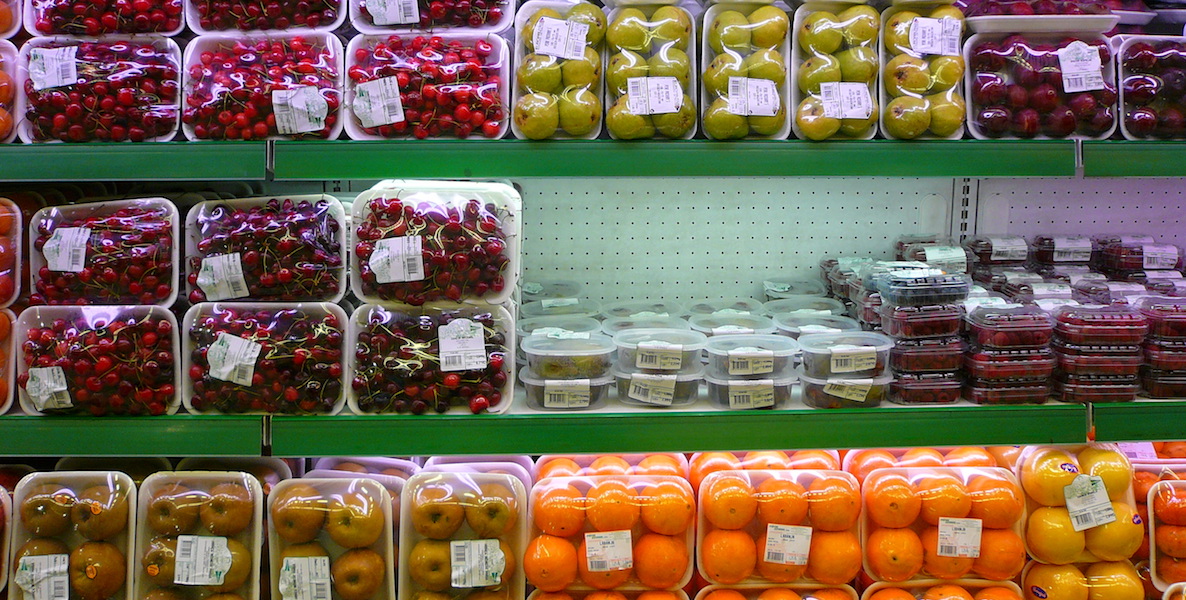Consider this disconnect: In Philadelphia this year, over 326,000 people will lack access to enough food to be healthy, a figure that hits its peak during summer, when children no longer receive free breakfast and lunch in schools.
At the same time, some 20 percent of edible food ends up in the trash every day in Philly, and 90 percent of the region’s 700 food pantries and soup kitchens run out of food at some point during the year.
It is almost incomprehensible, and Philly is not alone: Nationally, about 41 million people experience hunger, while nearly 300,000 pounds of food in America is wasted every month, according to the Environmental Protection Agency. And much of that waste comes from the very places we go to get our food in the first place: Supermarkets, which toss about a third of their product every year.
This is not only tragic—think of how many hungry people could be fed—but also bad for the planet. Uneaten food is the largest source of trash in landfills, which emit unhealthy methane gas into the atmosphere, according to the United States Department of Agriculture. And it is unnecessary.
In France, grocery store donations to a network of food banks that supply about 5,000 charities rose from 30 percent to 50 percent of their total—which amounts to more than 10 million additional meals per year.
“We have to rethink the way we think about food waste in this country,” says Kait Bowdler, deputy director of sustainability at hunger-fighting agency Philabundance. “We don’t need to be throwing it away—there are lots of other things we can do with it.”
This is the impetus for a pioneering food waste bill passed unanimously by the French legislature in 2016 which prohibits supermarkets larger than 400 square meters—about 4,300 square feet—from destroying unsold food. Instead, they are required to donate food still viable for humans to food banks; food viable for animals to farms; and the rest for composting. The law is part of a national objective to reduce food waste in the country by 50 percent by 2025 that also includes teaching students about food sustainability, and requiring restaurants offer doggie bags (something anathema to French culture).
![]()
It’s what Emily Broad-Lieb, director of the Food Law and Policy Clinic at Harvard Law School, calls a “triple bottom line” solution to helping people, planet and profits. “Reducing food waste not only helps the environment by reducing the impacts of waste, but also provides healthy, wholesome donated food to those in need, and creates economic value,” Broad-Lieb says.
In France, which wastes around 234 pounds of food per person each year, the two-year-old law has already seen results. Grocery store donations to a network of food banks that supply about 5,000 charities rose from 30 percent to 50 percent of their total—which amounts to more than 10 million additional meals per year. The donations include everything from store-branded yogurts that used to be tossed if they neared their label expiration date, to thousands of pre-made sandwiches that supermarkets refused to pass on, to produce that is bruised but still edible. Even beyond the quantity, this means people are getting access to healthier, fresher foods than the usual donations of canned goods and grains.
“This is a huge opportunity because of all the really food out there,” says Emma Kornatsky, manager of government affairs for Philabundance. “Meat, dairy, produce are all foods people really need in their lives but often can’t afford.”
In Philadelphia this year, over 326,000 people will lack access to enough food to be healthy. At the same time, some 20 percent of edible food ends up in the trash every day.
In Philadelphia, Philabundance has always had food recovery as part of its mission: Of the 25 million pounds of food it distributes every year, 80 percent would otherwise have gone to waste. And already, Bowdler says the organization recovers food from 250 grocery stores from 16 different chains—some 10 million pounds every year that the markets would otherwise toss into a landfill. “And there’s a lot more out there,” she says.
Getting even to this point has required a Herculean effort: It took several conversations at each location, convincing managers that it’s safe and legal to donate food after the printed expiration date. And it requires Philabundance or a partner organization to send a truck to each grocery to pick up the donated food. “Food recovery opportunities are not next door to agencies that need them,” Bowdler says. “So we have to have the resources, volunteers and trucks to transport it.” That’s not always efficient—which is why so much food is still simply tossed into the dumpster.
![]()
Several grocery story chains in the United States have already begun working to solve this issue, particularly Kroger—the largest supermarket chain in America, with stores throughout the South and Midwest—which aims to eliminate its food waste by 2025; and Walmart, which is standardizing its food labels to make them clearer, and has a program to sell less than perfect produce on its shelves.
But it’s unlikely that Congress would pass a food recovery law like that in France. Instead, it’s up to states and cities to make the connection between food waste, hunger and sustainability. Some are already starting to do that. Broad-Lieb says that in 2017, 80 pieces of food waste-related legislation were introduced in more than 20 states.
This is not only tragic—think of how many hungry people could be fed—but also bad for the planet. Uneaten food is the largest source of trash in landfills, which emit unhealthy methane gas into the atmosphere.
In California, for example, a proposed bill aims to recover 20 percent of edible food currently thrown away by 2025 by requiring food businesses like supermarkets and large restaurants to transport their surplus to a food recovery organization. Massachusetts, Rhode Island and Vermont all have food waste recycling laws that target large institutions. In Massachusetts, Broad-Lieb says a two-year-old law prohibiting businesses from disposing of more than 1 ton of wasted food per week in landfills has already shown economic benefits as well, creating 500 new jobs and $175 million in economic value.
Philadelphia’s Zero Waste & Litter Plan—with a goal of eliminating the use of landfills and incinerators by 2035—includes some plans to study and (hopefully) implement more municipal composting in coming years. This will require a significant uptick in our composting facilities, the cost of trash pickup and education of residents. The city also requires new buildings to include garbage disposals, which helps keep food scraps out of landfills. But neither the city, nor the state, have plans that include anything specific about getting unused food to the people who need it.
![]()
Philabundance last year commissioned Harvard’s Food Policy and Law Clinic to study Pennsylvania. The clinic’s report—which listed 40 policy recommendations—led the hunger agency to create seven legislative priorities it is now working to enact statewide, including a food diversion plan like that in France for supermarkets and other institutions. Kornatsky says she is using that list to recruit other partner organizations to work on this issue statewide and locally, as well as to identify legislators who will help craft and introduce new food waste laws in Harrisburg.
Those laws could take many forms, some that are smaller steps on the way to more comprehensive measures. And some could start with City Council passing local legislation. Could we, like in Massachusetts, limit how much supermarkets are allowed to toss? Could we, as Bowdler suggests, offer a tax incentive for restaurants or grocery stores who deliver their excess directly to food banks? (What’s lost in tax money could be recovered in savings to federal and state food programs.)
Could grocery stores be convinced to have a discounted post-expiration shelf, for things like cereal and breads that are past the sell by date? For that matter, could we finally get some food labelling laws that actually make sense, so we can keep things on the shelf longer? This would not only keep food waste down—it would keep costs down, as well. A family of four in America wastes on average $1,200 a year on food that gets thrown away—in large part because of expiration dates, even though there’s no detectable difference on a box of cereal on the sell by date.
“We need a community-wide change, that includes food manufacturers, and farms—and also people in their homes and who are shopping or eating out,” Kornatsky says. “I’m excited by the changes I’m starting to see in our state and our city because it’s a chance to move forward.”
Photo: Ricardo via Flickr





